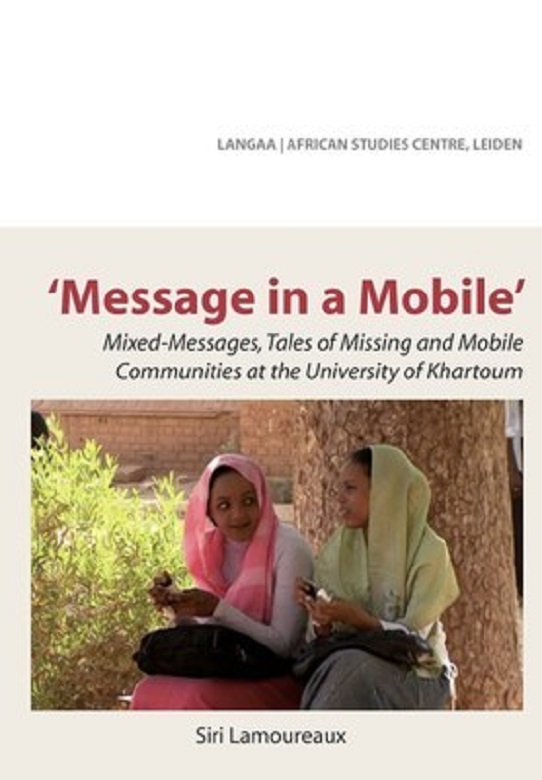written by Siri Lamoureaux
Mixed-Messages, Tales of Missing and Mobile Communities at the University of Khartoum
This detailed, meticulous ethnographic study on mobile phone use among Nuba students at the University of Khartoum in Sudan, distinguishes itself from other studies by taking a focused look at the linguistic content of mobile phone interactions via text-messaging, portraying it as a site for the expression of personalized and affective language. While men and women appear to be equally aggressive consumers and producers of text-message poetry, women are formally discouraged in using the phone for relations that go beyond the publicly acceptable norms of ‘keeping in touch’ and making arrangements. Nonetheless, women use it for such purposes and many manage it discreetly, showing how this technology can serve to subvert discursive norms on gender and marriage. The mobile phone in Sudan enhances individual autonomy over interactions, making possible the extension and creation of social spaces. It simultaneously enlarges private space and trespasses into public space. Poetic themes and language, previously limited to elite producers – those both more literate and who had control over mass media domains, radio and newspapers – are exposed to anonymous recipients, who draw from, copy or forward them in continuous circulation, thereby staking a claim in the public sphere. Similarly, the mobile phone serves as a site for the exercise of several layers of identity in negotiation, and reflects or creates alternative identities and the contestation of existing discourses, communities in physical space and notions of belonging.
| ISBN | 9789956726899 |
| Pages | 196 |
| Dimensions | 244 x 170 mm |
| Illustrations | B/W Illustrations |
| Published | 2011 |
| Publisher | Langaa RPCIG, Cameroon |
| Format | Paperback |





1 comment
“This study, considering evidence from Northern Sudan, is a welcome addition to the literature on mobile communication in Africa. It combines a wide-range of methodological approaches: collection of primary SMS data, qualitative interviews and ethnographic observation. The analysis shows convincingly and in great detail how mobile communication as a semi-private genre is part of an ecology of linguistic practices which allows for the expression of a local, urban Northern Sudanese identity and culture among young mobile phone users. A range of languages are involved in the production of mobile text genres. Most dominant are colloquial (oral) varieties of Arabic and (written) Standard Arabic, the latter also the official language of Sudan. In addition, there is substantial evidence for the global influence of English (colloquial, abbreviated as well as standard) on everyday communication practices. Although Sudanese mobile communication constitutes a space in which an African and non-Arabic Nuba identity is expressed, the non-official and marginalized languages belonging to the group of Nuba languages are only very rarely used in the texting genre. This is an important text for anyone interested in mobile communication and language – indigenous, national and global – in Africa.”
Dr Ana Deumert, Associate Professor of Linguistics, University of Cape Town, South Africa